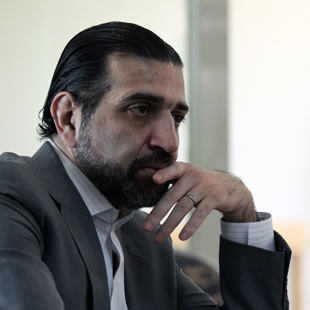Iran's Flawed Persian Gulf Diplomacy

The Iran-Iraq-Syria-Hezbollah strategic alliance should be maximally exploited, but the current deterrent, aggressive foreign policy of the Iranian government has failed to realize our potentials in the Persian Gulf, Caspian Sea, Afghanistan, and Iraq. We need to modify our regional policy. Iran and Iraq are two powerful countries in the Middle East. Syrian power is a reality. Hezbollah is not only a paramilitary force in Lebanon anymore, but a key political actor. Economic stability and massive investment in our southern coast will increase our economic and security capacities. We are a regional power, as global powers acknowledge; however, we have failed to reinforce our stature. Provocative language and behavior- such as Holocaust denial- contradict trust-building and détente and serve the interests of extra-regional forces. Iran's adversaries have made the most of our flawed diplomacy. Our nostalgia-driven calculations have resulted in diplomatic blunders, such as the first ever visit by an Iranian president to the UAE, a country that advances territorial claims against the triple Iranian islands, and Ahmadinejad's attendance at the illegitimate Persian Gulf Cooperation Council summit. This council is illegitimate since it does not admit Iran and Iraq as two major regional players. Together with Kuwait, Iran and Iraq could create a North Persian Gulf Corridor. A lack of coherent economic policies in border regions is another self-inflicted threat. Embarrassingly, our citizens travel to Dubai for small-scale purchases. The government should execute a full revision of economic policies.
A reason that Iran's relations with the US are not in a desirable state is the obstruction of Persian Gulf Arabs. Arms’ races and shaky equilibrium are the result of the Arabs’ attitude. The regional policy of Saudi Arabia and the United Arab Emirates strategically contradicts Iran's policies. Bandar bin Sultan, head of the Saudi National Security Council, is the coordinator of anti-Iranian policies in the Middle East. The UAE and Saudi Arabia, plus some other countries, are covertly running an intelligence war against Iran in the region while trying to disorient Americans, just as Pakistanis –who are still backing Al Qaeda and other extremists groups in Iraq, Lebanon, Iran and Afghanistan- did after the scandalous 9/11 terrorist attack.
Iran is a geopolitical power in the region, provided that it realizes its capacities and emerges from hibernation. If we appreciate our abilities, we will be the kingmaker in the region.

